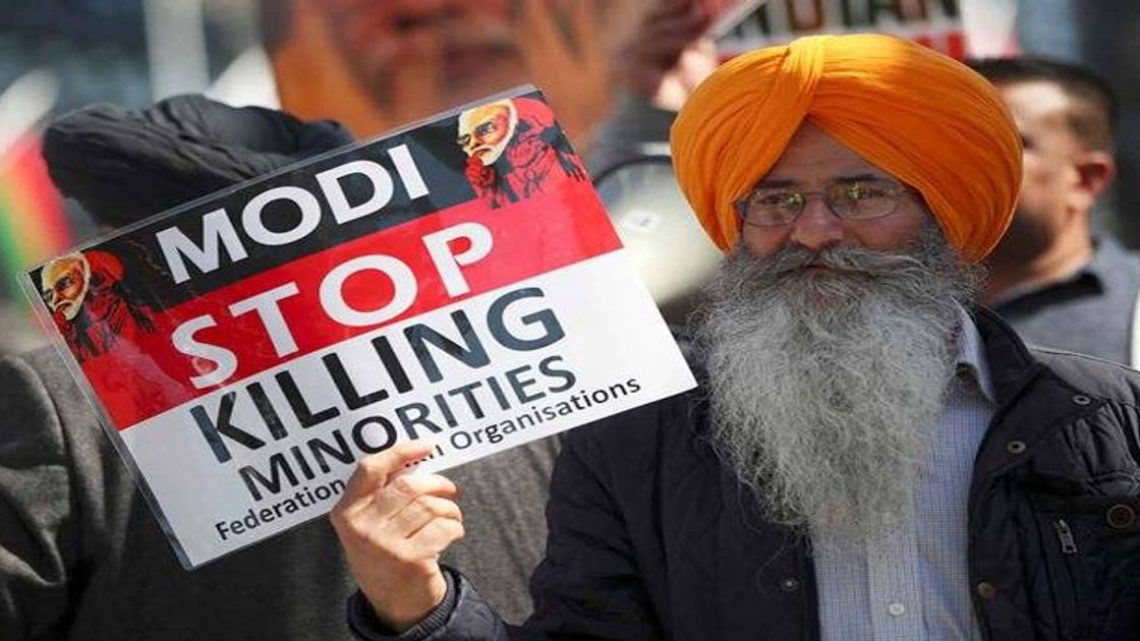
Protecting Religious Freedom in India: A Growing Concern
November 7, 2023In recent years, concerns surrounding religious freedom in India have intensified as the country has witnessed a steady decline in this fundamental right. Despite constitutional and international guarantees, the religious landscape in India has become increasingly marred by incidents of discrimination, harassment, and violence targeting religious minorities. Hindu extremism, in particular, has been on the rise, exacerbating the situation and causing alarm among various religious groups, including Muslims, Buddhists, Jains, Christians, and Sikhs.
Over the past decade, religious freedom in India has been under constant threat. Despite the presence of constitutional safeguards and international commitments, religious minorities have faced adversity, discrimination, and violence, which challenge the pluralistic and inclusive ethos of the country.
One of the most alarming aspects of this decline in religious freedom is the surge in Hindu extremism. This trend has manifested in various forms, including harassment and violence against individuals from different religious backgrounds. Muslims, Buddhists, Jains, Christians, and Sikhs have all been targeted, causing distress and insecurity among these communities.
A study conducted by economist Deepankar Basu highlighted a shocking 786% increase in hate crimes against all religious minorities between 2014 and 2018. This surge followed the electoral victory of the Bharatiya Janata Party (BJP) and raises concerns about the role of political rhetoric and policies in perpetuating such violence.
Discriminatory laws, such as anti-conversion and anti-cow slaughter laws, have been increasingly employed to oppress religious minorities and justify violence, including forced conversions. These laws often run contrary to international standards for religious freedom and have a chilling effect on the ability of individuals to freely practice their faith.
Anti-conversion laws, in particular, have come under scrutiny for limiting religious freedom and disproportionately targeting religious minorities. These laws not only violate international standards but also create an atmosphere of fear and suspicion, where individuals are hesitant to express their religious beliefs openly.
An additional concern is the legal inequity that exists in matters of religious conversion. While conversion from Hinduism to other religions faces legal repercussions, converting non-Hindus to Hinduism often occurs with relative impunity. This inconsistency highlights the need for comprehensive legal reforms that respect the freedom of religion for all.
Another disturbing trend is the emergence of cow protection lynch mobs, which have led to violence and harassment against individuals involved in the dairy industry. These incidents underscore the urgent need for addressing issues related to vigilantism and ensuring the rule of law is upheld.
It is evident that urgent and comprehensive measures are needed to protect religious minorities in India. This includes thorough investigations of religiously motivated violence and the repeal of anti-conversion laws to align with international obligations and commitments to religious freedom. Additionally, it is crucial for authorities to address the rise of extremism and take proactive steps to foster religious tolerance, understanding, and inclusivity.
In conclusion, the declining state of religious freedom in India is a matter of grave concern. It is imperative that the government, civil society, and international bodies work together to ensure that the constitutional and international guarantees of religious freedom are upheld, and that measures are taken to promote a harmonious and inclusive society where all individuals can freely practice their faith without fear of discrimination or violence. Protecting religious freedom is not just a legal obligation; it is a fundamental tenet of a democratic and pluralistic society that must be preserved at all costs.

